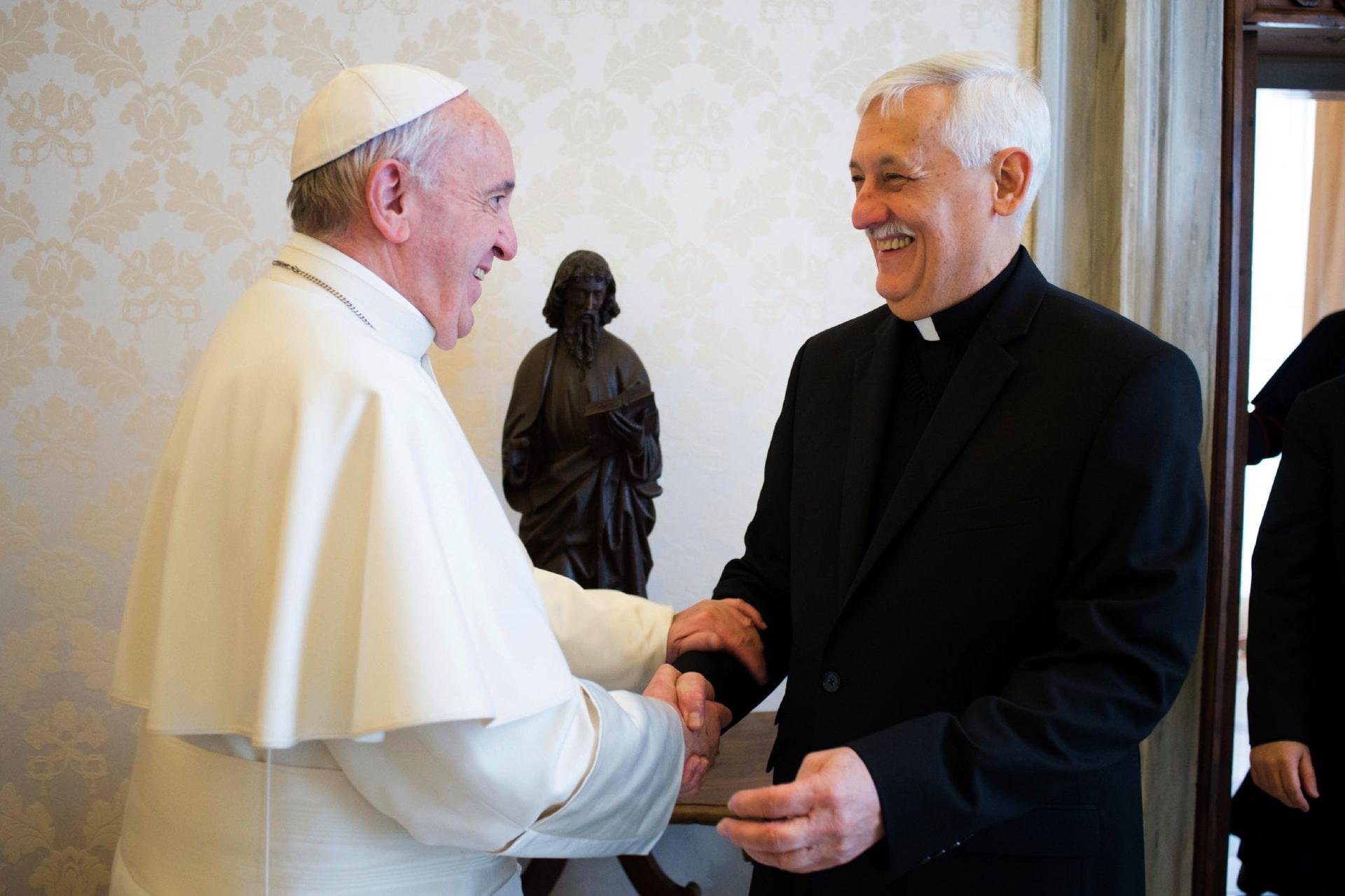Rejecting charges of “relativizing” the words of Jesus, and even doctrinal heresy, the superior general of the worldwide Jesuit order on Sunday stood by his insistence that no one was tape-recording Christ, and therefore statements attributed to him in the New Testament, including on marriage, have to be “interpreted.”
“I don’t know why so many people got mad at me for what I said, which is that in the time of Jesus there were no tape-recorders, because it’s the truth,” said Father Arturo Sosa Abascal of Venezuela, who took over last October as the 31st Superior General of the Jesuits.
The reference is to a controversy that broke out in February, when Sosa gave an extended interview to veteran Swiss Vatican journalist Giuseppe Rusconi. In the course of the conversation, Rusconi asked Sosa about remarks by German Cardinal Gerhard Müller, the Vatican’s top doctrinal official, about the words of Jesus on marriage, “let no one separate what God has joined,” adding that “no power in heaven or on earth, neither an angel nor a pope, neither a council nor a law of the bishops, has the ability to modify it.”
Müller’s citation of the line was widely taken as expressing doubt about the cautious opening to Communion for the divorced and civilly remarried associated with Pope Francis’s document on the family, Amoris Laetitia.
“You need to start by reflecting on what exactly Jesus said,” Sosa told Rusconi. “At that time, no one had a tape recorder to capture the words. What we know is that the words of Jesus have to be contextualized, they’re expressed in a certain language, in a precise environment, and they’re addressed to someone specific.”
That caused backlash in the Italian-language Catholic blogosphere, with various commentators accusing Sosa of relativism with regard to the Bible, of disregarding the words of Jesus as they’ve come down through Catholic tradition, and even of doctrinal heresy.
On Sunday, Sosa spoke to the Italian news service TGCOM24 to reject those complaints.
“The Gospels were written 40 to 50 years after Jesus,” Sosa said. “The earliest tradition is oral, and the first witnesses are the Apostles, the disciples who began to recount what Jesus had said.
“The Christian communities born from this experience wrote the Gospels later to hand down the words of Jesus, but we’re talking about sometime later,” Sosa said.
“If we pick up the Gospels, we’ll see that they’re similar but also different, because the communities they’re addressed to were different,” Sosa said. “These are the texts we know as the word of God. That said, we also have to take account of something else – to understand what’s written, we have to understand the context in which it was written.
“The words of Jesus must be understood in context, as interpreted, in the ample sense, by the Chruch,” Sosa said. “Doctrines, in a sense, are the result of this interpretation by the Church. All these things help us to understand better.”
Sosa argued that the people who became angry with him were wrong to perceive a “relativization” in his remarks.
“It’s exactly the opposite,” he told the Italian news program.
“When we interpret, it’s to understand better what Jesus said directly,” Sosa said. “If we understand better what Jesus said, then we’ll also understand better how to act like him.”














